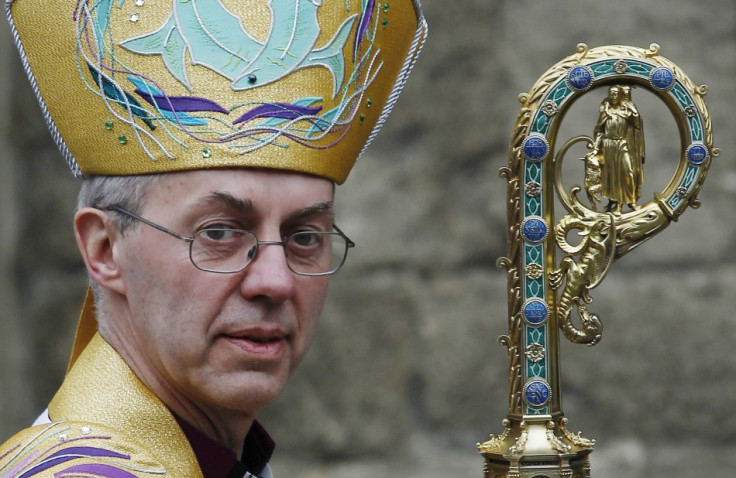Justin Welby's Wonga Woes: Church of England Avoiding 'Sinful Investments' is Almost Impossible

The Archbishop of Canterbury Justin Welby was reminded that wading into the world of finance does not come without its risks.
The problem of reputation risk has already become apparent.
Revelations that the Church of England's pension fund had invested in a North American venture capital firm that in turn invested in Wonga has certainly done some damage.
The amount involved in is small - £75,000- compared with an overall fund of £5.2bn (€6bn, $8bn).
But the potential reputation damage that this might cause to the Archbishop's campaign, as well as the church, could be larger.
Indeed, it has already highlighted important gaps in the Church's ethical investment policy.
Probably the most surprising was the under this policy, the Church's fund can invest in a company which holds up to 25% investment in the sin industries (porn, gambling, pay-day lending) and 10% in weapons.
These revelations will spur change in the policy.
But they could mean the Church loses some of the moral authority which its leader is currently trading on in his mission to reform the industry.
Complexity
The second big risk comes from complexity.
The Church is certain full of smart people, some of whom have significant financial acumen. But contemporary financial markets are exceedingly complex.
Recent research suggests it is almost impossible to identify who owns which shares in the UK economy.
This means despite the good bankers of the Church trying to locate all sinful investments on the Churches balance sheet, it will be almost impossible.
The result is that diligent seekers of sin-stocks will always be able to find something untoward amongst the Churches investment. Getting more involved in the financial markets is likely to bring these complexities into greater public focus.
The final significant risk the Church faces is mission creep. If it gets occupied with matters financial, it could find that its precious attention gets taken away from its core role.
And one thing we do know is that when organizations begin to focus on non-core activities, then they can start on a slippery slope towards failure. One way to mitigate this danger is to insure that any forays into financial issues remain clearly connected to the purpose of the church and what it is actually good at doing.
Andre Spicer is a Professor of Organisational Behaviour at Cass Business School
© Copyright IBTimes 2025. All rights reserved.





















